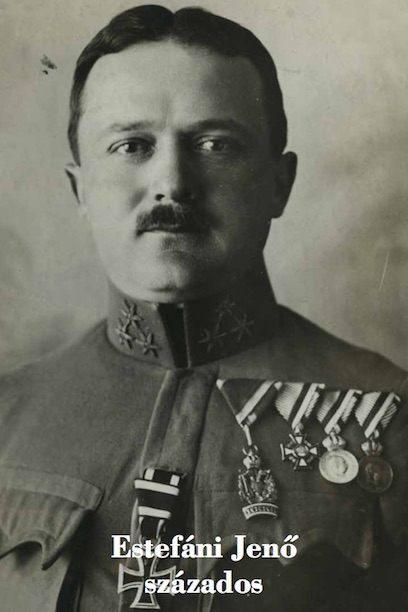The most painful part of every war, people died. Behind the statistics , the numbers there are millions of individual destiny.
In a war there are always victors and losers. After the Peace of Westphalia in 1648, Europe has learned that if it wants stability, conflicts must be closed with taking all interests into account. Victors shouldn’t take it all and the losers should not lose everything. World War I, the Great War did not only bring new observations, new ideas, new knowledge, but also encouraged forgetting old knowledge. Victors could think that if they win in this very big war they can take it all. They forgot something for which everyone – victors and losers both – paid a very high price.
In every war the most painful are the deaths. Reading statistics, the high numbers are not personal so we tend to forget about the torturing feeling of irreversible loss. Nations regard soldiers killed in action heroes – war cemeteries, statues, memorials and memorial cites preserve their memories. Society’s remembrance vanishes much faster – especially in case the family has no personal recollection of the departed. Therefore, from a distance of a century it is perhaps more proper to say those, who passed away were our grandfathers, great-grandfathers and great-great grandfathers: members of our families. They are not just dead heroes of World War I, but also of our families. Their memory does not only belong to the state, but to all of us.
◆
“The peace was no peace. We are independent but we cannot rejoice, only tremble. That sense of security may never return into our hearts.”
Mihály Babits
„It is not love but hate that unites people.”
G. K. Chesterton
“If I were to sum up the 20th century, I would say that it kindled the greatest ever hopes of mankind and then it brought down all illusions and ideals right away.”
Yehudi Menuhin
“The dismemberment of our country, however, wonderfully and tragically coincides with the development of our intellectual and spiritual autonomy. For centuries, this is the first time that we stand up as an independent intellectual unit. The pain that this causes is already a sign that we exist, that we have to live and die here, as we proclaim by our very existence.”
Dezső Kosztolányi
The group of statues at the entrance commemorate the Hungarian hunters of the army. The Brother–in–Arms can be seen at the exit.
At the end of 19th century it seemed that the upcoming is going to be the most promising century in the history of mankind.
The way the big explosion took place, it included everything what used to be regarded as achievements before.
Women up until then were less credited partakers of history. In the 20th century they had become more and more equal players.
War has become the organizing principle for society and this principle was above all others. Everything changed.
In a war it is very important what feelings fighters feel in their soul. The hatred has become part of the emotional culture.
The most painful part of every war, people died. Behind the statistics , the numbers there are millions of individual destiny.
Tisztelt Látogató!
A kommunista vezetőket bemutató adatbázisunk az 1989-ben megjelent Segédkönyv a politikai bizottság tanulmányozásához című kötet online változata.
A jelenleg 532 életrajzot, 6902 kronológiai adatot, valamint 990 bibliográfiai tételt tartalmazó digitális adattár folyamatosan bővül, így a Kommunizmuskutató Intézet megkezdi az állampárti diktatúra többi irányító szervezetére, azok képviselőire vonatkozó adatok összegyűjtését és publikálását.
A több évet igénybe vevő kutatómunka eredményeképp bemutatjuk majd a korszak parlamenti képviselőit, az Elnöki Tanács, a Minisztertanács, a Szakszervezetek Országos Tanácsa, a Hazafias Népfront, valamint a KISZ Kb stb. vezető testületeinek tagjait.
Tovább